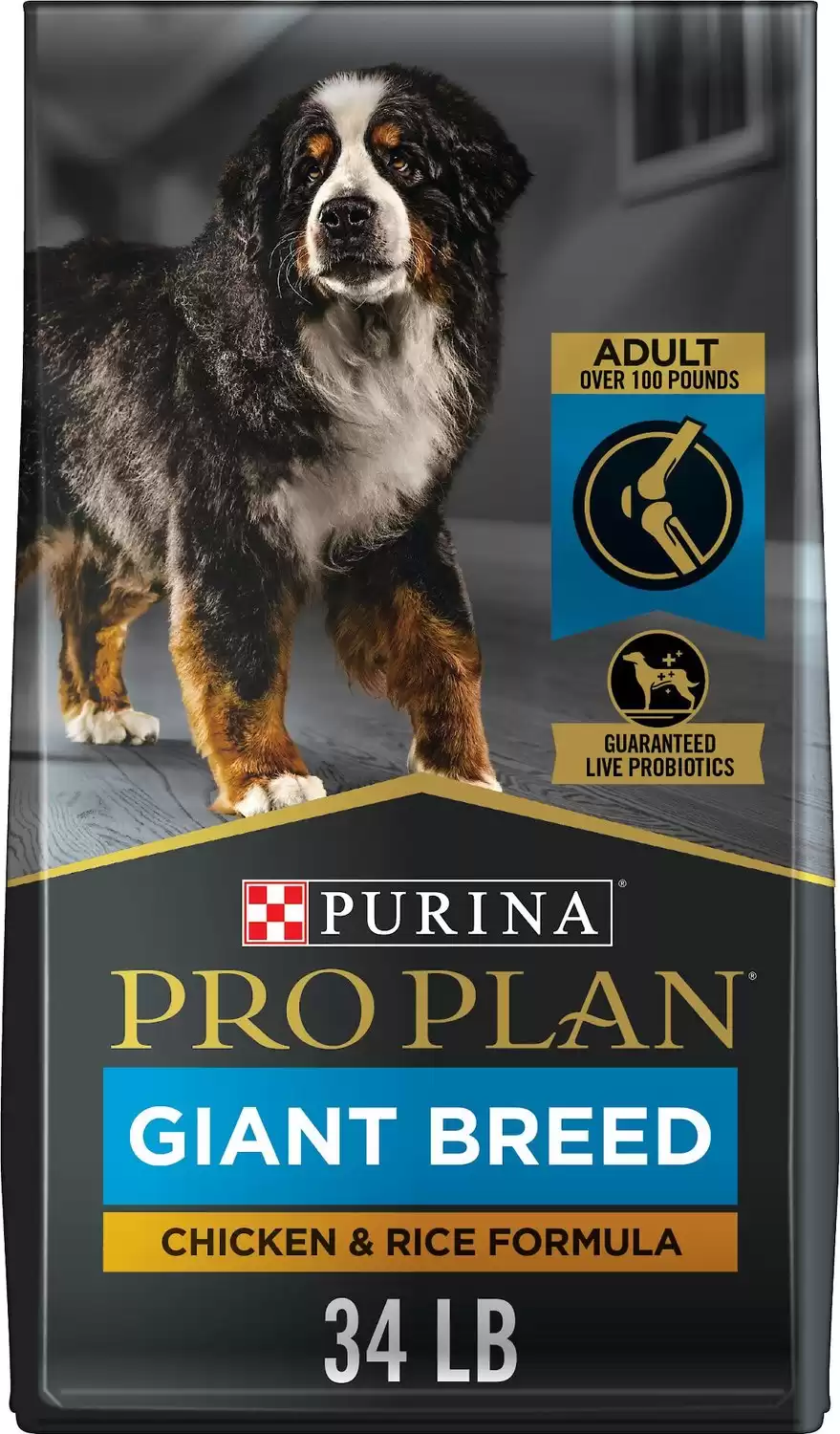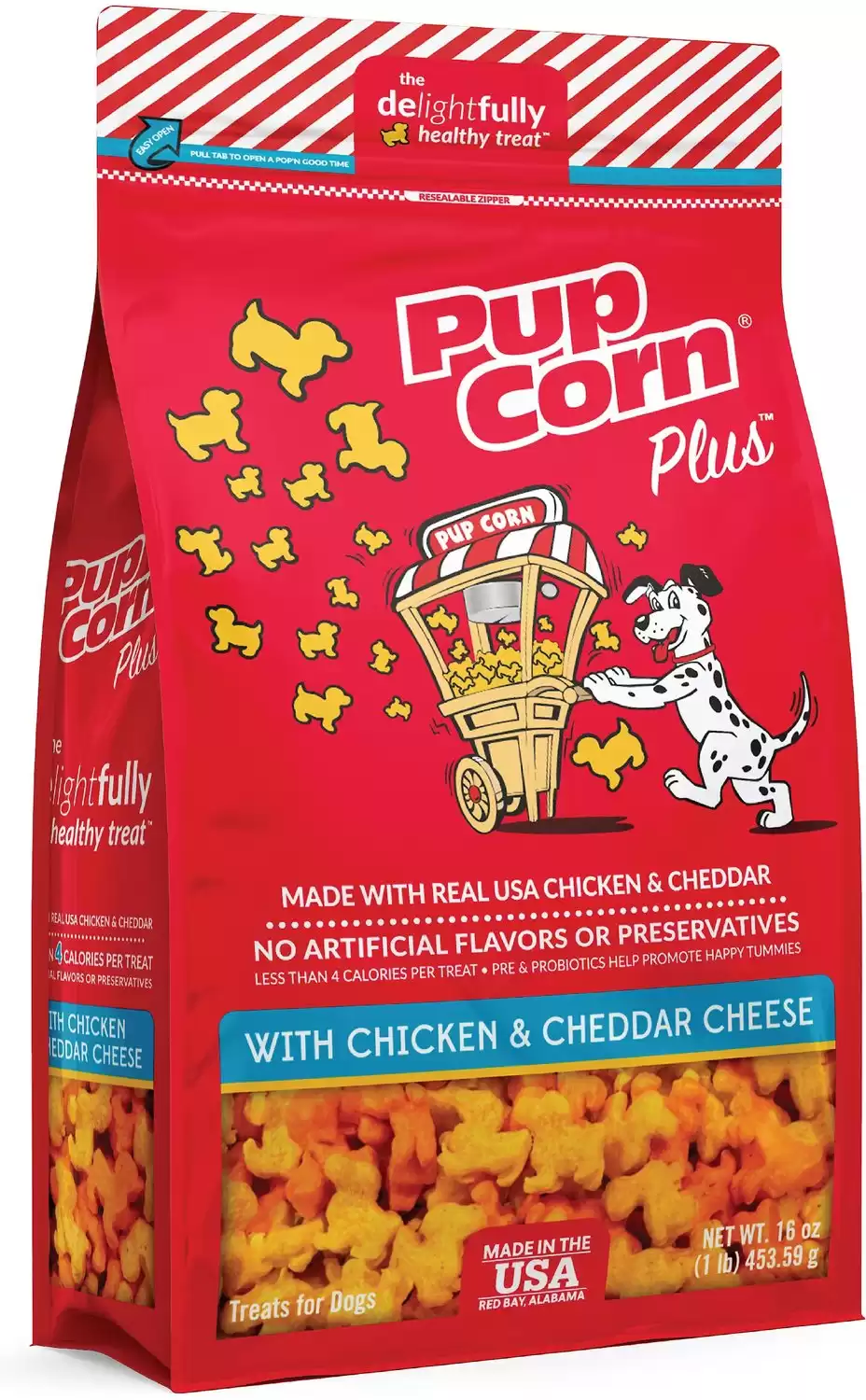Popcorn is a very tasty, popular snack among humans, but is it safe to feed to your dog? The answer is it depends. As a snack, popcorn is great for people, but maybe not so much for your dog. However, popcorn before all of the extras like butter and salt are added, can be a mildly healthy snack that you can give to your dog as a treat. There are still a few risks when it comes to popcorn, so you will need to exercise caution if you plan to give some to your dog. Read on as we answer the question: can dogs eat popcorn?
Is Popcorn Healthy for Your Dog?
Many affordable dog food brands contain corn as one of their main ingredients, which is not toxic to your dog. It is an inexpensive way to add fiber and calories to a scientifically balanced diet that is very beneficial to your dog. But corn is not exactly the same thing as popcorn and it makes a big difference when you’re considering its nutritional health. While they are able to ingest corn, can dogs eat popcorn?
Popcorn comes from a type of corn that has a higher water content inside of the kernel than regular corn does. When the water inside the center of the kernel is heated to over 375 degrees, it expands and the kernel then explodes into what we all know to be popcorn.
Popcorn is considered to be a whole-grain food, which is healthy. It comes packed with B vitamins like niacin, thiamin, and pyridoxine which work to support healthy energy and cell production in the body. These vitamins and nutrients also help regulate the body’s hormone levels and supports your dog’s immune and nervous systems.
It is also loaded with many trace minerals like magnesium, iron, phosphorus, potassium, copper, manganese, and zinc. All of these minerals work to help improve your dog’s cellular function and keep its skin healthy and coat shiny. They also regulate the immune and nervous system as well as many other essential functions that contribute to your dog’s overall health and wellbeing.
One of the best reasons to consider giving your dog a taste of popcorn as a treat is because it is high in dietary fiber, low in calories, and full of powerful polyphenol antioxidants. The fiber helps maintain your dog’s digestive system and ensures that things continue to run smoothly in its digestive tract, lowering the risk of constipation or diarrhea. This also reduces your dog’s risk of obesity and helps transport water through the digestive tract.
Antioxidants also destroy free radicals in the body that would otherwise do damage to the body’s cells. These free radicals come from environmental toxins and from stress due to diseases. They also work to reduce the risk of your dog developing some forms of cancer.
So can dogs eat popcorn? Although all of these things sound like great reasons for your dog to eat popcorn, it’s important to note that your dog cannot eat enough popcorn in order to take advantage of these health benefits. For dogs, it is best if popcorn is given as a tasty snack in moderation rather than for its health benefits.
- Specially formulated to support the unique needs of dogs over 100 pounds
- High-protein formula
- Contains live probiotics
- Include glucosamine and omega-3 fatty acids
Can Popcorn Be Dangerous to Dogs?
Whenever you are planning to offer your dog a new food as a treat, it’s always best to check with your veterinarian first. They will be able to tell you exactly what foods are safe for your dog and in what amounts based on your specific dog’s needs and medical history.
When it comes to popcorn, the problem lies in how it is prepared. Can dogs eat popcorn the way we commonly prepare it? We normally tend to think of giving our dogs a taste of popcorn from our own bowls—meaning that the popcorn usually will have added ingredients such as butter and salt that may not be healthy for your dog to consume.
So how can dogs eat popcorn safely? The best way to offer popcorn to your dog is by air-popping it and leaving it plain with no salt or butter. You also want to be sure that all of the un-popped kernels are removed before giving it to your dog so that they do not pose a choking hazard or cause digestive issues if swallowed.
What makes popcorn so dangerous when giving it to dogs is really the added fats and sodium. These can cause all sorts of havoc in your dog’s body and lead to weight gain and health issues later down the line.
Let’s take a look at some of the things that can make popcorn dangerous to give to your dog:
- Added fats and oils: These can cause obesity in your dog if consumed too often and in large amounts. Obesity can also lead to heart problems, arthritis, and kidney disease. Fats and oils can also cause gastrointestinal upsets like diarrhea, vomiting, and gas.
- Kettle corn or caramel corn: These types of popcorn have lots of added sugars. They are especially bad for dogs that are diabetic or are already overweight.
- Sodium: Too much sodium in popcorn can lead to dehydration, salt toxicity, or iron poisoning. All of these are serious issues for dogs that will require immediate veterinarian care.
- Peanut butter: We all know that dogs love peanut butter. But when added to popcorn it can be hazardous if it contains the artificial sweetener Xylitol, which is highly toxic to dogs.
- Unpopped popcorn kernels: These can lead to many issues for your dog They are very hard for your dog to digest if swallowed and can cause blockages that are difficult to move through your dog’s digestive system. If your dog experiences a blockage, you will need to seek immediate medical care for your dog from a veterinarian as this can be life-threatening.
- Popcorn kernel hulls: These can also be an issue for your dog. When humans eat popcorn, the hulls can often get lodged in our teeth or in-between our gums and be very uncomfortable. We can use dental floss, or brush and rinse the hulls out, but dogs cannot. This will lead to tremendous discomfort for your dog and can lead to tooth decay, gum diseases like gingivitis, or even dental disease.
- Shape: The shape of popcorn itself can be a choking hazard for dogs. If you toss a piece of popcorn to your dog and it lands badly, your dog can end up swallowing it without chewing which can lead to choking.
- Microwave popcorn: The bags used for microwave popcorn can contain toxic chemicals (PFCs) that are added to keep the oils from seeping through the bag lining. PFCs are known to cause cancer and get absorbed by the popcorn kernels.
Can Dogs Be Allergic to Popcorn?
Yes, dogs can be allergic to popcorn. Just like wheat or soy, corn is a known allergen to dogs. Signs of a corn allergy in your dog would include things like gas, diarrhea, vomiting, or an upset stomach. You may also notice excessive licking (especially on the paws), a skin rash, or irritation. If you suspect that your dog has an intolerance or is allergic to popcorn, stop giving it to your dog and speak with your veterinarian.
Can Dogs Eat Popcorn Flavored With White Cheddar?
Although white cheddar popcorn might be tasty to humans, it should not be fed to dogs. In fact, dogs should not eat any type of cheesy popcorn, as they contain lots of ingredients that are not good for their health. The “cheese” that is added to the popcorn is actually a mixture of salt, oils, and milk products that are unhealthy for your pet. Dogs do not benefit from any extra salt or oils in their diets and they can actually cause a lot more harm than good—especially if your dog is lactose intolerant. The best course of action is to avoid giving your dog cheesy popcorn altogether.
How to Feed Your Dog Popcorn Safely
As we mentioned before, the safest way to feed your dog popcorn as a snack it to serve it air-popped and without any added ingredients like butter or salt. Any commercially packaged popcorn like Skinny Pop, Smart Food, movie theater popcorn, kettle corn, or caramel corn is NOT a good snack choice for your dog. These types of popcorn can pose serious health risks for your dog. Instead, opt for things like plain popcorn, hull-less popcorn, etc. Popcorn that is hull-less has smaller and more tender kernels that make it a safer choice for your dog. If you plan to pop some homemade popcorn to share with your dog, just be sure to separate the popcorn for your dog before you add in any ingredients that you’ll be having with yours. Even though popcorn has some nutritional value for your dog, it is not enough to warrant it as a regular snack or as supplementation to its healthy dog food.
You could also consider giving your dog an alternative to popcorn that is designed to be safe for him to consume while you have your popcorn treat of your own.
- Available in 5 sizes
- Made with real chicken and Cheddar cheese
- 100% free from artificial flavors and preservatives
- Contain prebiotics and probiotics to support your dog's healthy digestion.
- Made in the U.S.A.
What Should I Do If My Dog Ate Popcorn Kernels?
If you suspect that your dog consumed popcorn kernels, you should monitor its behavior closely and watch for signs of distress. If your dog is choking you need to take them to an emergency veterinarian hospital immediately so they can get help. Contact your vet if your dog displays any signs of an upset stomach or vomiting so that you can be advised on the best treatment options for your dog.
The photo featured at the top of this post is © Javier Brosch/Shutterstock.com
Ready to discover the top 10 cutest dog breeds in the entire world?
How about the fastest dogs, the largest dogs and those that are -- quite frankly -- just the kindest dogs on the planet? Each day, AZ Animals sends out lists just like this to our thousands of email subscribers. And the best part? It's FREE. Join today by entering your email below.
Thank you for reading! Have some feedback for us? Contact the AZ Animals editorial team.








